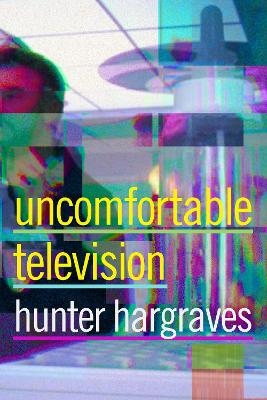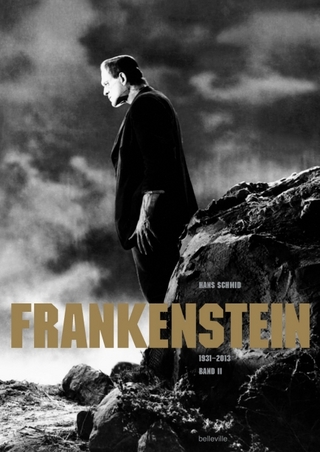
Uncomfortable Television
Seiten
2023
Duke University Press (Verlag)
978-1-4780-1957-2 (ISBN)
Duke University Press (Verlag)
978-1-4780-1957-2 (ISBN)
Hunter Hargraves examines how postmillennial television made its audiences find pleasure through discomfort, showing that televisual unease trains audiences to survive under late capitalism, which demands that individuals accept a certain amount of discomfort, dread, and irritation into their everyday lives.
From The Wire to Intervention to Girls, postmillennial American television has dazzled audiences with novelistic seriality and cinematic aesthetics. Yet this television is also more perverse: it bombards audiences with misogynistic and racialized violence, graphic sex, substance abuse, unlikeable protagonists, and the extraordinary exploitation of ordinary people. In Uncomfortable Television, Hunter Hargraves examines how television makes its audiences find pleasure through feeling disturbed. He shows that this turn to discomfort realigns collective definitions of family and pleasure with the values of neoliberal culture. In viscerally violent dramas, cringeworthy ironic comedies, and trashy reality programs alike, televisual unease trains audiences to survive under late capitalism, which demands that individuals accept a certain amount of discomfort, dread, and irritation into their everyday lives. By highlighting how discomfort has been central to the reorganization and legitimization of television as an art form, Hargraves demonstrates television’s role in assimilating viewers into worlds marked by precarity, perversity, and crisis.
From The Wire to Intervention to Girls, postmillennial American television has dazzled audiences with novelistic seriality and cinematic aesthetics. Yet this television is also more perverse: it bombards audiences with misogynistic and racialized violence, graphic sex, substance abuse, unlikeable protagonists, and the extraordinary exploitation of ordinary people. In Uncomfortable Television, Hunter Hargraves examines how television makes its audiences find pleasure through feeling disturbed. He shows that this turn to discomfort realigns collective definitions of family and pleasure with the values of neoliberal culture. In viscerally violent dramas, cringeworthy ironic comedies, and trashy reality programs alike, televisual unease trains audiences to survive under late capitalism, which demands that individuals accept a certain amount of discomfort, dread, and irritation into their everyday lives. By highlighting how discomfort has been central to the reorganization and legitimization of television as an art form, Hargraves demonstrates television’s role in assimilating viewers into worlds marked by precarity, perversity, and crisis.
Hunter Hargraves is Associate Professor of Cinema and Television Arts at California State University, Fullerton.
Acknowledgments ix
Introduction: Television Scripts 1
1. The Irritated Spectator: Affective Representation in (Post)millennial Comedy 27
2. The Addicted Spectator: TV Junkies in Need of an Intervention 57
3. The Aborted Spectator: Affective Economies of Perversion in Televisual Remix 89
4. The Spectator Plagued by White Guilt: On the Appropriative Intermediality of Quality TV 121
5. The Woke Spectator: Misrecognizing Discomfort in the Era of “Peak TV” 162
Notes 197
Bibliography 219
Index 239
| Erscheinungsdatum | 10.01.2023 |
|---|---|
| Zusatzinfo | 32 illustrations |
| Verlagsort | North Carolina |
| Sprache | englisch |
| Maße | 152 x 229 mm |
| Gewicht | 431 g |
| Themenwelt | Kunst / Musik / Theater ► Film / TV |
| ISBN-10 | 1-4780-1957-3 / 1478019573 |
| ISBN-13 | 978-1-4780-1957-2 / 9781478019572 |
| Zustand | Neuware |
| Informationen gemäß Produktsicherheitsverordnung (GPSR) | |
| Haben Sie eine Frage zum Produkt? |
Mehr entdecken
aus dem Bereich
aus dem Bereich
Filmtechnik, Bildgestaltung und emotionale Wirkung
Buch | Hardcover (2024)
Carl Hanser (Verlag)
CHF 62,95


